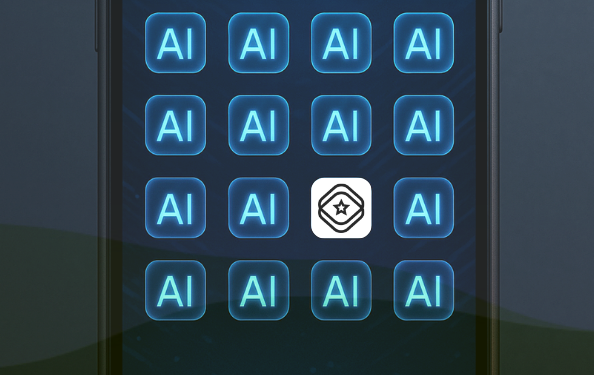
Dementia Carers and the struggle to support independence
Author: Michelle Peck
This article covers:
- Anxiety, grief and loneliness
- Burnout, identity and health strain
- Challenges to supporting independence
- Technology can support peace of mind
Caring for a loved one with dementia is both a profound act of love and an emotional challenge. Family members and caregivers often wrestle with anxiety, grief, and the constant worry of what will happen when they cannot be there. Balancing the need for independence with the responsibility for safety is never simple; but with the right tools and support, it is possible to extend dignity, autonomy, and peace of mind for both the person with dementia and their caregiver. Meanwhile, carers experience life-consuming challenges to deliver support to loved ones:
Anxiety, grief & loneliness
Persistent worry about absence: Caregivers often experience acute anxiety fearing what would happen if they were suddenly unavailable. This anticipatory grief—grieving losses in advance of death—adds emotional weight to daily caregiving.
Anticipatory grief: Caring is born from love and unbreakable bonds, which is why anticipatory grief for the person with dementia can be so confusing and painful for carers.
Chronic stress, isolation, and loneliness: Many caregivers report high levels of loneliness, depression, and anxiety; often sacrificing their own health and well-being and failing to take time to meet with friends or relax due to the time-cost of caring.
Fatigue driven by emotional strain: Anxiety with deep emotional involvement correlate strongly with mental and physical fatigue in carers. Hope can mediate these effects, but dementia caregivers often report very low levels of hope.
Burnout, identity & health strain
Emotional and psychological burden: The caregiving role often comes with a profound sense of loss, accompanied by the feeling of the world 'shrinking' down to the carer role only, with contradictory feelings of guilt for 'not caring enough'. This can become emotionally and psychologically overwhelming.
Role change and identity strain: Transitioning from spouse/child to caregiver can fracture relationships and lead to internal emotional conflict. Caregivers often hide their emotional strain to protect the care recipient’s sense of independence.
Health impacts and mortality: Caregiver stress can lead to serious health consequences, including weakened immunity, chronic conditions, and even increased mortality risk.
Challenges to supporting independence
Balancing assistance with independence: While family members aim to preserve independence, the tension between enabling autonomy and ensuring safety is taxing. Professionals may encourage “positive risk-taking,” but family caregivers frequently feel left holding that risk.
Ethical and relational dilemmas: Care-recipients wish to maintain normalcy and not rely on others, yet caregivers prioritize preventing harm. These conflicting goals create emotional distress for people experienceing cognitive decline - and dilemmas for their caregivers.
Technology can support peace of mind
By enabling carers to create visual tasks with phone-based reminders to guide and schedule daily tasks, apps such as Taskey can extend the period of independent living and support psychological and physical wellness. Taskey’s versatile task screen enables carers and practitioners to quickly capture media appropriate to the attention style of the unique recipient, with a rich mix of visual and auditory instructions for them to follow when you are not there. This can help them:
- follow through with their routines
- improve their overall health and well being
- maintain the self-respect that comes from self-reliance.
For example, using the Taskey app, you can send a single task or set of tasks to their phone, that can include any or all of the following:
- VIDEO: a quick video of the person you support preparing lunch or any daily activity while you ‘narrate’
- PHOTOS: images of medication to be taken, a location or resources required for a task
- AUDIO: record an encouraging voice memo, maybe "Hey Mum, don’t forget to ...! Remember I love you and will see you ...."
- PDF: attach a simple recipe or other guide as a PDF for easy reference.
- WEBLINK: a link to a relevant YouTube video
- REMINDER SCHEDULE: for example, the phone sends a push notification daily at 8am and 12pm.
As a key tool in your dementia care toolkit, Taskey can significantly reduce stress and anxiety for you as a carer. with Taskey on hand to support your loved one or client to achieve the tasks essential for survival and wellbeing, you can have confidence that daily tasks are being managed ‘independently’ - even when you are not there.
Taskey enables you to send activities as tasks, phone to phone, with reminders. That’s all it does - it’s simple, and designed for mobility and accessibility.
Even better, it’s free, with no credit card required to set up and use your account with two contacts - that means most family caregivers will never have to pay, and support workers and their organisations can try Taskey risk-free.
If you would like to learn more about how Taskey can help, contact us today.







